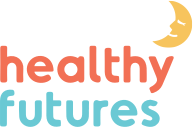Your Baby
Might start to show signs of teething – These signs can include fussiness, drooling, and rubbing at the gums. However, teething does not cause fever or illness. Hard rubber teething rings and massaging her gums may help relieve soreness. Be patient with your baby as she needs lots of comforting during this time.
May babble and say simple sounds like “ba ba ba” or “ma ma ma” – Help your baby’s development by repeating the sounds he is making and singing or saying rhymes, poems, or simple stories. Your baby develops new brain connections for language with every song you sing, book you read, and babbling “conversation” you have together.
Roll from stomach to back and back to stomach – You can help your baby by having plenty of tummy playtime.
May sit alone or with support and may start pulling herself up in her crib – Give your baby a safe place to practice these skills.
May start drinking from a cup – Offer small amounts of water in a non-breakable cup.
Might Sleep for long periods at night and take naps – Set a regular schedule to get into a routine.
A Few Words About Juice and Sippy Cups…
Although juice can be introduced around six months of age, it is not necessary or a substitute for the complete nutrition of breastmilk or formula. According to the American Academy of Pediatrics, juice can contribute to poor nutrition, childhood obesity and tooth decay. Limit juice to four ounces or less per day to ensure that the essential nutrition provided by breastmilk or formula is not replaced. Since juice has a natural laxative effect, you may want to dilute it with some water. Overuse of sippy cups is linked to improper tooth development and can lead to speech delay. Drinking small amounts of water from an open cup helps muscles around the mouth develop for speaking and eating. Work on this together. Your baby will spill a little, but will learn learn from the experience!
Your Family
You are your child’s first and most influential teacher. Your child will learn more from you than any other person, especially during the first five years. But you and your baby can both benefit from interactions with others as well. Playgroups for families and other parenting supports are available in our region. For more information on playgroups near you, visit Great Start.
Your Checklist
Remember to baby proof your home – and your habits to keep your baby safe and healthy.
- Remove all dangers from the baby’s reach: medicines, blind and curtain cords, etc.
- Put covers on all your electrical outlets
- Use Safety gates across stairways
- Never leave the baby alone in the tub
Educate yourself on the safe use of baby equipment and toys. Read the directions and check to make sure products have not been recalled. Walkers can be dangerous!
Your baby is due for his six-month immunizations and well-baby check-up. Vaccine-preventable diseases can cause serious harm to children who are not fully immunized. Call your baby’s health care provider or your local health department to make an appointment.
Ask Your Health Care Provider
As a parent, it is good to know the basic milestones that your baby should reach. Now is the time to have a conversation with your baby’s health care provider about how your child is developing. Call Early On at 1-800-327-5966 or talk with your Healthy Futures nurse for more information.
Solid Foods – Your baby’s most important nourishment during the first year is breastmilk or formula. If you have not done so already, now is the time to talk with your baby’s health care provider about introducing solid foods.




